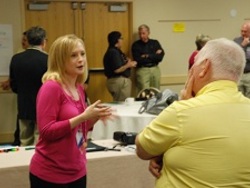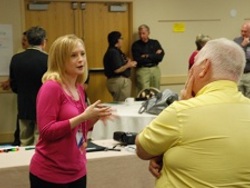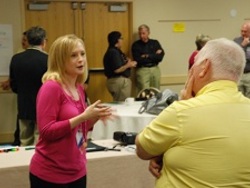


Amsterdam - the perfect place to rest and break up the long, 10,000 mile trip to Africa. Or so I thought! After visiting the famous Anne Frank house, I roamed down streets, canal after canal. Thinking this may be the last time I'd be able to check email, I darted into an internet cafe, unsnapped my backpack belt from around my waist, and carefully placed my bag under my chair and sat down to work. Suddenly, I looked around and my backpack was gone!
My heart sank into the pit of my stomach as my psyche began to catalog what had vanished. My passport, all my money, credit cards, bank cards, traveler's checks, my camera, video camera, medications, jewelry, itinerary, plane tickets, lizard key chain complete with keys, and my precious journal.
With horror, I admitted to myself the unthinkable - a thief had snatched my bag from between my legs. The culprit had even stolen my map of Amsterdam along with the name of the hotel I was staying in and my hotel room key. I pleaded with the cafe clerk to call the police. He grunted and refused, touting, “They won't come! There are too many pickpockets around here. You will have to go to find the police yourself.”
Stunned with his response, I wandered outside into the cool, breezy night. Feeling unhinged from everything and everybody on earth, I stood in the middle of the dark street and struggled to stop the tears from flowing. What was I going to do? I didn't even have any money to make a phone call.
In just over 24 hours, my flight was leaving for Africa. I was heading there to volunteer for a month with orphan children who had all lost their parents to AIDS. Was I going to make it? How was I going to recover? I was alone, LOST in Amsterdam, with NOTHING but the clothes on my back!
***
Storytelling has been around for thousands of years, and it's arguably your most powerful (and least used) tool for sharing information, increasing retention, and delivering results! By learning how to tell stories, you can bring about profound change.
Here are a few tips for telling better stories.
Don't miss out on updates and chances
to sharpen your skills with participant-centered learning.




3740 N Chestnut St #113 - Chaska, MN 55318-3053